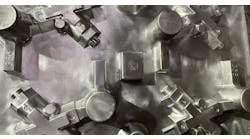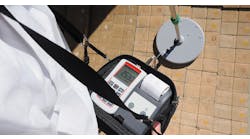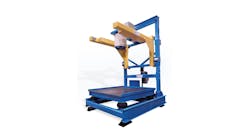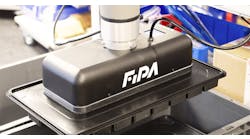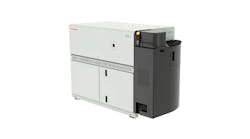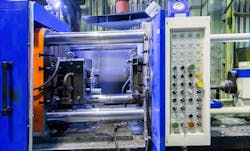Hydraulic fluids have a fundamental role in manufacturing, promoting efficiency and reliability in almost every piece of industrial machinery. For more than 70 years, water glycol has been the fluid of choice for foundries and diecasters, driving plant efficiency, supporting cost management and even enhancing safety with its flame-retardant properties.
Today, as manufacturing becomes increasingly competitive and producers have a greater focus on environmental requirements alongside production efficiency and machine service life, water glycol hydraulic fluids are coming into greater focus. Modern developments in fluid technology are unlocking new opportunities for manufacturers, helping them to advance operational efficiency, reduce costs, and enhance quality.
Since its inception more than 70 years ago, Quaker Houghton’s QH HoughtoSafe® 620 series has become a familiar solution. It provides maximum safety for use under pressure, near open flames and in high temperature areas, and it has set the performance standards by which other water glycol fluids are measured. As requirements continue to evolve across industries, including metalcasters and primary metal producers, continual improvement of industrial fluids has led to formulas that extend service life, reduce wear, reduce operating costs, and support sustainability efforts.
To ensure manufacturers can navigate increasingly challenging operating environments, water glycol hydraulic fluids play an essential role – but finding the most effective solution can make a tangible difference to the bottom line.
The benefits of water glycol
One of the primary reasons for popularity of water glycol hydraulic fluids is fire-resistance. As operating pressures increase across most industrial applications, the risk of fires from ruptured lines increases dramatically – and the need to enhance safety grows with it. Alongside fire-resistant properties, industry professionals will be familiar with the typical benefits, including: enhanced levels of operational safety; reduced friction and wear on critical equipment; and reliable performance of machinery.
But, what if water glycol hydraulic fluids could do even more? As manufacturers’ first choice in fire-resistant hydraulic fluid, continuous innovation is ensuring that solutions drive operational performance over the long-term.
Quaker Houghton’s innovation in this area has focused on the development of QH HoughtoSafe® 620 EP. The solution builds on the familiar success of the 620 series to deliver ‘extreme performance’ and heightened benefits for manufacturing – from accelerating air-release rates and reducing foam creation, to extending component lifespans and minimizing hard water impact.
Air release is the time it takes for entrained air to get to the surface in the tank, and so the faster the air release, the smaller tanks can be designed – creating tangible efficiencies. Typical water glycols have air-release values as high as 15 to 20 minutes, whereas the 620 EP formula delivers air release of 7-8 minutes.
In practice, a low level of entrained air enhances bulk modulus, aiding higher mechanical accuracy and system efficiency that can result in lower cost of operation.
Foaming is another familiar characteristic of traditional water glycols, which is usually controlled through the use of foam inhibitors. QH HoughtoSafe® 620 EP has been designed to maintain low foaming characteristics, also after filtration, resulting in enhanced operational efficiency.
Where efficiency is concerned, 620 EP builds on the excellent lubrication characteristics of past formulations, helping to further extend pump and component life. During benchmark testing, less than 40 mg weight loss was recorded after 1,000 hours in an ASTM D 7043 pump test – an unmatched level of performance that underlines the standard of excellence. This demonstrates the solution’s ability to minimize friction and wear on critical components, extending life and reducing downtime due to repair and maintenance.
Similarly, when running a hydraulic unit with a water glycol, the fluid level in the tank will move up and down, for example, due to cylinder actuation. During this process, water can evaporate, reducing its content to much lower than its starting point of 40%. This leads to high viscosity and potentially inferior fire resistance. In most instances, the solution is to top up the tank with soft or demineralized water which avoids formation of harmful hard water deposits. In the rare event that hard water is added in error, costly damage can result quickly.
The newly formulated QH HoughtoSafe® 620 EP was developed to provide exceptional hard water stability, so that in the event of hard water being used to correct viscosity there is a greatly reduced risk of any damage or disaster occurring.
Investing beyond today
Continuous innovation that builds on the characteristics of familiar water glycol hydraulic fluids is expanding the role of these solutions in manufacturing. By implementing advanced fluids, manufacturers can enhance productivity and quality of output, while elevating safety, reducing total cost of ownership and even improving their environmental credentials.
As it improves solution performance, Quaker Houghton is ensuring that ongoing development of industry-leading lubricants also reduces environmental impact.
QH HoughtoSafe® 620 EP reflects this ambition, being readily biodegradable to deliver greater than 60% biodegradation, making it a natural choice for those looking to lessen the impact on the environment. In addition to all this, QH HoughtoSafe® 620 EP offers the same formula and performance in both EMEA and APAC regions, providing Original Equipment Manufacturers (OEMs) and end-users with a perfectly harmonized product – no matter where in these regions their operations are based.
Albert Tuitavake is the Strategic Product Line Manager SPLM (ASEAT) and Ronald Knecht is the Global Strategic Product Line Manager of Hydraulics & Lubricants at Quaker Houghton.
